A Survey on A.I. Trust in America
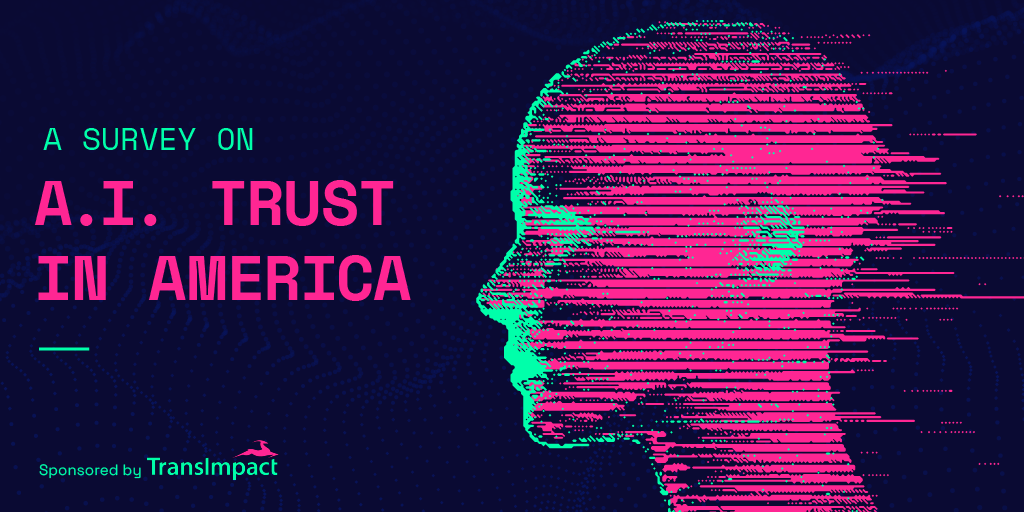
A.I. has begun helping out in a lot of areas that were once only handled by humans, from transportation, to factory work, to even finances. A.I. is only growing more capable and popular by the day, so how does the average American feel about it? It’s not an easy question to answer, especially when you consider that we are currently living in an age where there are generations that knew a life before the internet and one that has only ever known a computer-run world. But we tried our best to get to the bottom of it.
Methodology
We created a survey that asked respondents for their opinions on subjects like self-driving cars, facial recognition, and A.I. technologies in general. It ran for one day in January 2022 and received 1,000 responses in total.
Do Americans Trust Artificial Intelligence (A.I.)?
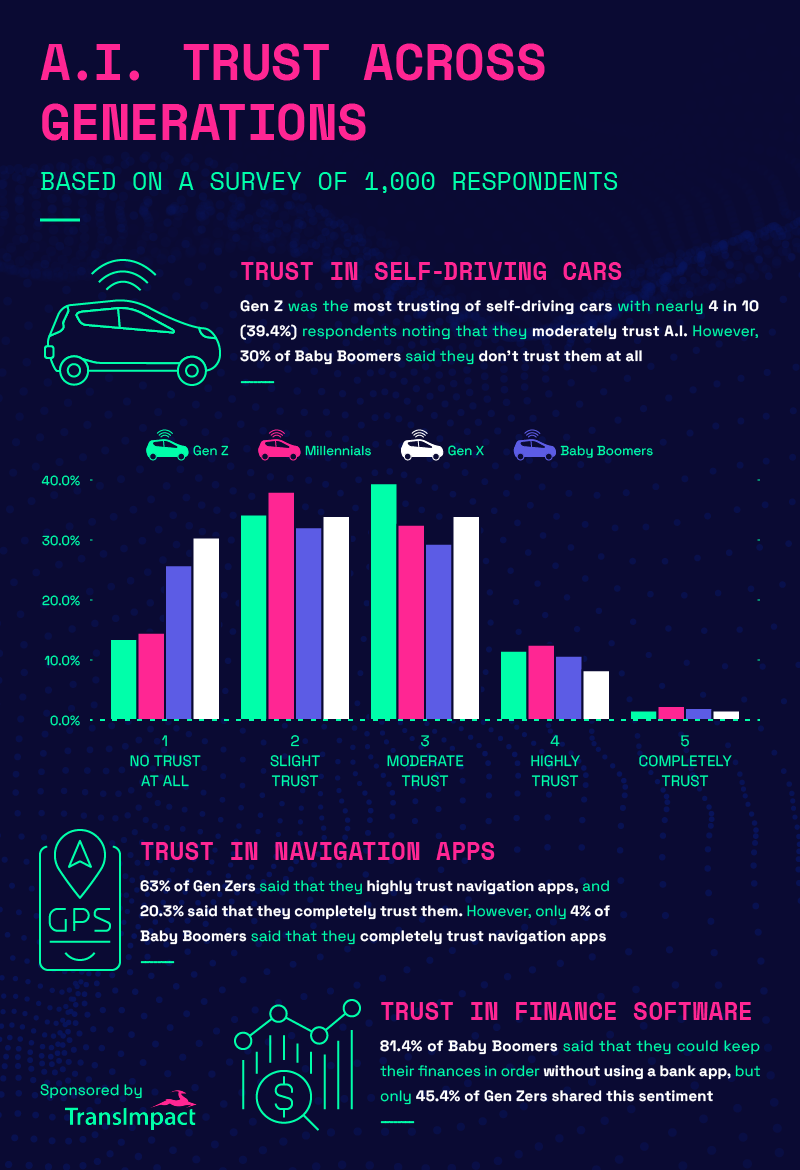
While only 2% of our respondents said they completely trust self-driving cars, 34.6%, or more than one in three people, said they trust them at least a little bit. Taking into consideration the incredibly limited amount of self-driving cars that are actually on the road right now, this opinion could be indicative of a growing trust in A.I.
At first glance, the 64.9% of our respondents that said they’d be willing to use facial recognition technology to get through lines at the airport faster might seem to support our theory of a growing trust in A.I. technology, but it’s hard to say whether or not this statistic is simply indicative of people’s willingness to forgo a certain amount of privacy in exchange for convenience.
However, our theory’s nail in the coffin might be the 39% of our respondents that said they would only slightly trust A.I. to make financial decisions for them and the 31.2% that said they wouldn’t trust A.I. with financial decisions at all.
How Do Americans Feel About Target Marketing – Using A.I.
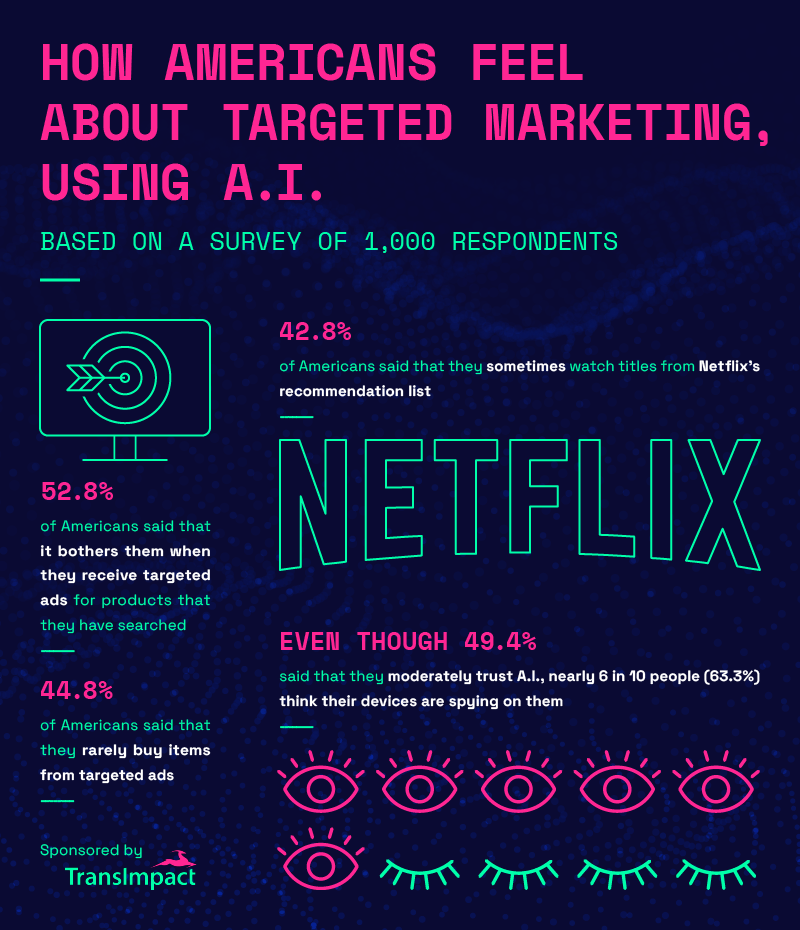
A bit more than half of our respondents (58.2%) said that they’re bothered by targeted ads, and a whopping 69.2% of our respondents said they rarely or never buy the products that are featured in targeted ads.
These percentages might be due to the number of people that believe these targeted ads could be the product of devices eavesdropping on their owners. A majority of Americans (63.3%) said they think their devices spy on them, and 20.5% of our respondents that don’t own a smart home device said it’s because they don’t trust them.
A.I. Trust Across Generations

Sometimes results can be quite predictable. When comparing responses across generations, it became clear that the younger generations are more likely to trust and even rely on A.I. and technology in general.
For example, Gen Zers have the highest percentage of people that trust self-driving cars a moderate amount or more (52.6%) while baby boomers have the highest percentage of people that don’t trust self-driving cars at all (30.43%). 20.3% of Gen Zers say they have complete trust in navigation apps, yet just 4% of baby boomers feel the same way. And 81.4% of baby boomers think they’d be able to manage their finances without the help of technology, while just 45.4% of Gen Zers shared this sentiment.
A.I. Trust Across Gender
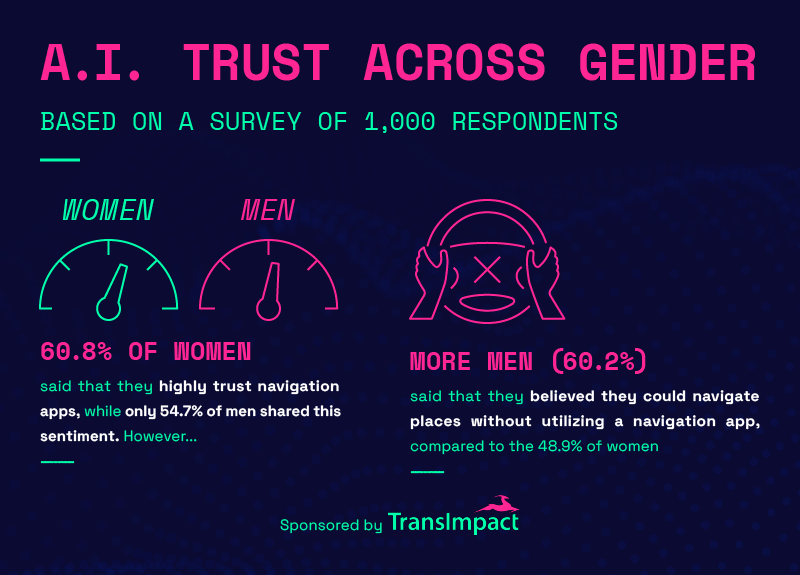
Gender doesn’t seem to affect A.I. opinions quite as severely as age, but perhaps one of the biggest differences between men and women was each gender’s confidence in their ability to handle finances, regardless of technological assistance. Our survey shows that 73% of men think they can keep their finances in order without the help of a banking app, while just 58.6% of women think the same thing. In the same vein, 60.2% of men said they think they could successfully navigate somewhere without using a map app, while just 48.9% of women think the same thing.
Which Personality Type Trusts A.I. More?
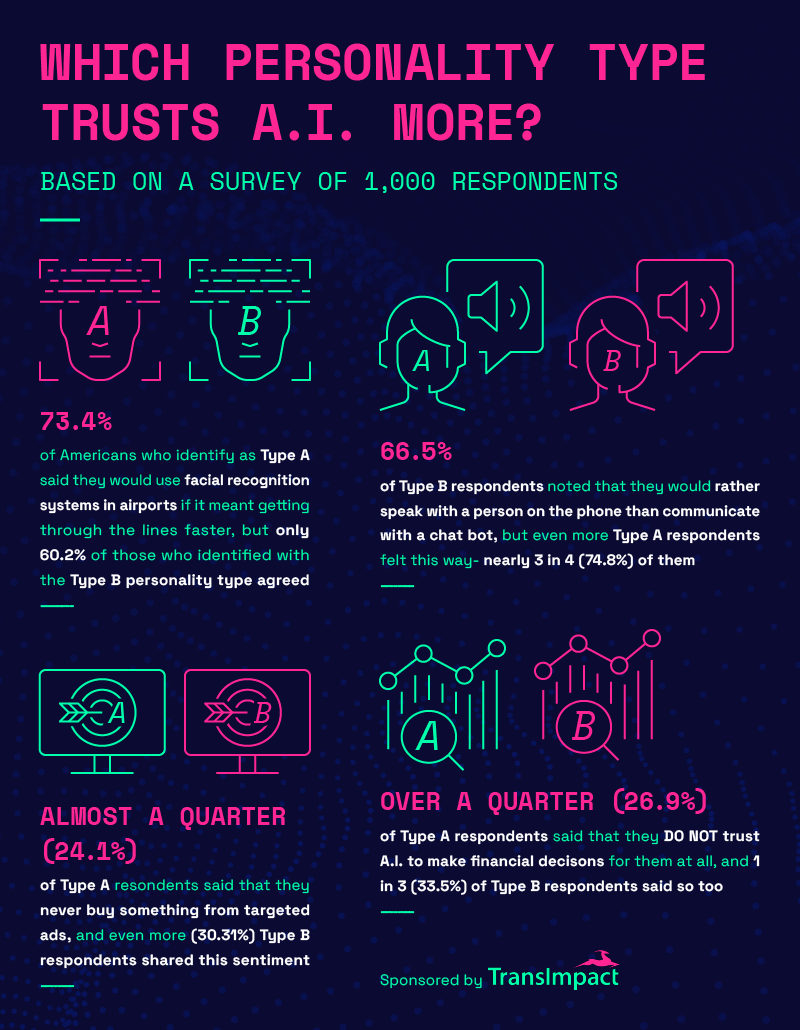
If you’re not already aware, someone is thought to have a Type A personality if they’re more competitive, assertive, and impatient, but a Type B personality if they’re more laid-back and mild-mannered.
Of our respondents that say they have a Type A personality, 73.4% said they would cooperate with facial recognition technology at an airport if it meant faster lines, but only 60.2% of our survey’s self-identifying Type B personalities said the same thing. This seems to track, as your typical Type A person might be willing to make some level of sacrifice to save time, while your typical Type B person might be less punctual, or more cautious with their personal data, or both.
Type B respondents were definitely more cautious than Type A respondents regarding A.I. making financial decisions on their behalf though, as 33.5% of Type B respondents claim they don’t trust A.I. with their finances, yet just 26.9% of Type A respondents say the same.
Closing Thoughts
While everyone possesses their own level of comfort with A.I, the fact of the matter is that businesses are utilizing various A.I. technologies to operate more efficiently right now. Upgrading to a connected TMS technology through TransImpact can knock anywhere from 15-25% off your business’ total logistics spend.
Contact the shipping consultants at info@TransImpact.com for more information on how your company can reap the benefits of a tech-enabled logistics operation.

